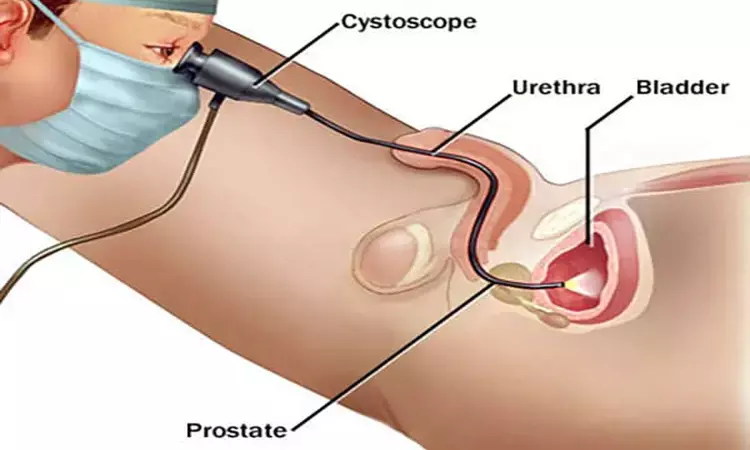- Home
- Medical news & Guidelines
- Anesthesiology
- Cardiology and CTVS
- Critical Care
- Dentistry
- Dermatology
- Diabetes and Endocrinology
- ENT
- Gastroenterology
- Medicine
- Nephrology
- Neurology
- Obstretics-Gynaecology
- Oncology
- Ophthalmology
- Orthopaedics
- Pediatrics-Neonatology
- Psychiatry
- Pulmonology
- Radiology
- Surgery
- Urology
- Laboratory Medicine
- Diet
- Nursing
- Paramedical
- Physiotherapy
- Health news
- Fact Check
- Bone Health Fact Check
- Brain Health Fact Check
- Cancer Related Fact Check
- Child Care Fact Check
- Dental and oral health fact check
- Diabetes and metabolic health fact check
- Diet and Nutrition Fact Check
- Eye and ENT Care Fact Check
- Fitness fact check
- Gut health fact check
- Heart health fact check
- Kidney health fact check
- Medical education fact check
- Men's health fact check
- Respiratory fact check
- Skin and hair care fact check
- Vaccine and Immunization fact check
- Women's health fact check
- AYUSH
- State News
- Andaman and Nicobar Islands
- Andhra Pradesh
- Arunachal Pradesh
- Assam
- Bihar
- Chandigarh
- Chattisgarh
- Dadra and Nagar Haveli
- Daman and Diu
- Delhi
- Goa
- Gujarat
- Haryana
- Himachal Pradesh
- Jammu & Kashmir
- Jharkhand
- Karnataka
- Kerala
- Ladakh
- Lakshadweep
- Madhya Pradesh
- Maharashtra
- Manipur
- Meghalaya
- Mizoram
- Nagaland
- Odisha
- Puducherry
- Punjab
- Rajasthan
- Sikkim
- Tamil Nadu
- Telangana
- Tripura
- Uttar Pradesh
- Uttrakhand
- West Bengal
- Medical Education
- Industry
Is it useful to perform biopsy at flexible cystoscopy? Study throws light

Ireland: A recent study in the Irish Journal of Medical Science sheds light on whether it is worthwhile to perform a biopsy at flexible cystoscopy for diagnosis and surveillance of bladder carcinoma. According to the study, about 18% of biopsies helped in malignancy detection, small volumes of tissue are collected at flexible cystoscopy, these can help to distinguish malignancy from benign pathology.
Flexible cystoscopy is the standard procedure for the surveillance and diagnosis of bladder carcinoma. Most flexible cystoscopes having a working channel that allows for biopsy and diathermy -- in case a suspicious lesion is observed. Only small instruments are permitted in the working channel that limits the volume of material retrieved for historical analysis. There are no standards of quality control of biopsy specimens taken at flexible cystoscopy.
Jody Khan, University Hospital Galway, Newcastle Road, Galway, Ireland, and colleagues reviewed the diagnostic yield of biopsies taken at flexible cystoscopy at our institution.
The researchers retrospectively examined theatre logbooks to identify cases of flexible cystoscopy where bladder biopsy was performed. Histopathology reports were reviewed. All biopsies were taken using single-use biopsy forceps, diameter 1.8 mm, open cup width 4.5 mm.
Key findings of the study include:
- From January 2014 to December 2017, a total of 143 biopsies were performed.
- All biopsies were taken for suspicious lesions where the differential diagnosis included malignancy.
- Of the 143 samples taken, 27 biopsies showed evidence of malignancy, and 9 cases were high-grade urothelial cancer.
- A total of 16 samples were inadequate for any histological diagnosis.
- All remaining samples excluded malignancy within the sample provided.
- A histopathological diagnosis was provided for almost 89% of cases.
"Our institution reports a non-diagnostic rate of approximately 11%, and in these cases, when there is still a suspicion of malignancy, a rigid cystoscopy and biopsy should be performed," concluded the authors.
The study, "Biopsy at flexible cystoscopy: is it worthwhile?" is published in the Irish Journal of Medical Science.
Dr Kamal Kant Kohli-MBBS, DTCD- a chest specialist with more than 30 years of practice and a flair for writing clinical articles, Dr Kamal Kant Kohli joined Medical Dialogues as a Chief Editor of Medical News. Besides writing articles, as an editor, he proofreads and verifies all the medical content published on Medical Dialogues including those coming from journals, studies,medical conferences,guidelines etc. Email: drkohli@medicaldialogues.in. Contact no. 011-43720751


